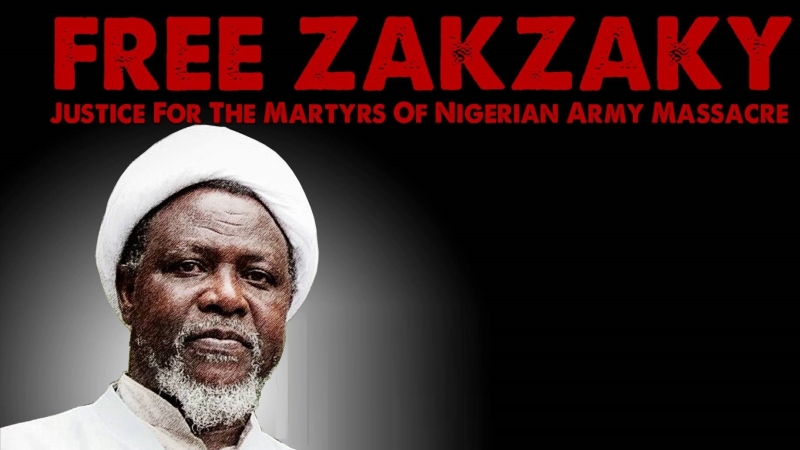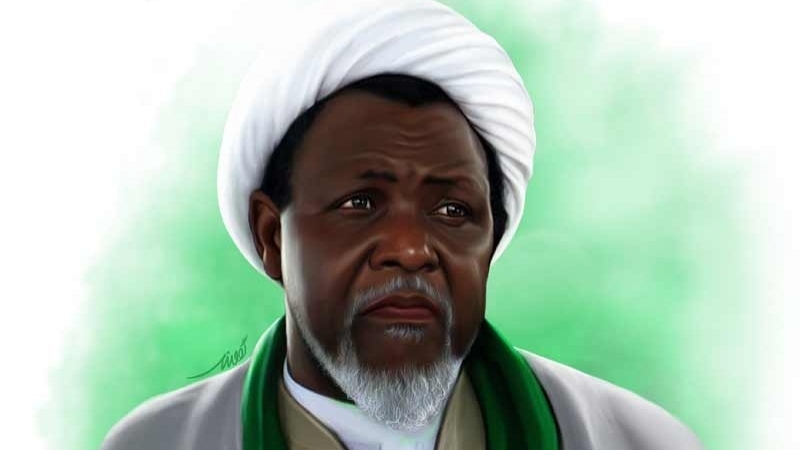Nigeria’s openness excludes Muslim activists
Empowering Weak & OppressedOur Own Correspondent
Rajab 26, 1419 1998-11-16
World
by Our Own Correspondent (World, Crescent International Vol. 27, No. 18, Rajab, 1419)
When general Abdulsalam Abubakar took over as Nigerian head of State in June, following the sudden death of his predecessor general Sani Abacha, he promised to reform the country’s political system, re-introduce democracy, and ‘withdraw all charges against political offenders.’ Since then the western press has made much of his progress, he has been permitted to tour western capitals, and the Commonwealth foreign ministers meeting in London on October 8 recommended that sanctions against Nigeria be lifted in recognition of his democratic reforms.
The issue of political prisoners has been the most critical. Since Abacha’s execution of novelist Ken Siro-Wiwa, the western media have focused on this issue as a gauge of Nigeria’s progress towards democracy and liberalism, and Abubakar has released many pro-democracy prisoners to appease them. The announcements last month that Wole Soyinka, the Nobel laureate for literature, and other political exiles were prepared to return to Nigeria before the presidential elections due on May 29, 1999, has also been taken as a good sign.
However, there is one area in which Abubakar has proved no more liberal than his predecessor: the Islamic movement. It is also no surprise that the west has chosen to totally ignore Abubakar’s continued suppression of Islamic activism in Nigeria as it demands a clear anti-Islamic stance as a condition for its support from regimes all over the world. The west’s vocal demands for democracy and freedom are, of course, only slogans; what it really demands is that regimes be pro-western and viciously suppress all anti-western elements, particularly Islamic ones.
The arrest and imprisonment of Ma’allam Ibrahim Zakzaky under the Abacha regime is well-known. What is less well-known is that he and dozens of other Islamic activists remain in prison despite Abubakar’s well-publicised release of other political prisoners. At least 50 people have been extra-judicially killed by police this year alone. Many died when demonstrations were violently dispersed.
Islamic activists and their families are also harassed and suppressed in countless other ways; all without the slightest comment or objection from western governments or human rights agencies.
The London-based Islamic Human Rights Commission, headed by Massoud Shadjareh, last month published a comprehensive report under the title Human Rights Violations in Nigeria April 1997-September 1998, complementing and updating its earlier reports on Nigeria. While much of the IHRC’s work has focused on the plight on Ibrahim Zakzaky, this report also highlights numerous other cases and indicates that Zakzaky’s plight is only part albeit a major one, of a wider campaign against the Islamic movement. The IHRC also emphasizes that there has been no change in the government’s attitude towards the Islamic movement since the death of Abacha and the coming to power of Abubakar.
Among the episodes, the report highlights are:
Police firing on a peaceful Muslim youth demonstration in Katsina on January 30, 1998, in which five unarmed youths were killed; the demonstration was calling for the release of Zakzaky and protesting US policies towards Iraq.
A police attack on a Qur’anic study group in the Sheikh Dahiru Bauchi Mosque in Tudunwada, Kaduna province, on February 3, in which one student was killed and three seriously injured. The attack was ordered because the meeting had been convened without special permission.
On April 17, 1998, Zeenah Al-Zakzaky, wife of Ma’allam Ibrahim, was arrested along with six of their seven children, eight other women and 16 children. Two days later, on April 19, a march in Kaduna protesting these arrests was fired on, with 16 protesters killed and an equal number injured. The next day, nine more people were killed when police opened fire at the funeral processions of some of those killed the previous day. Among them was a four-month-old boy, Muhammad Baqir Junaid.
Zeenah Al-Zakzaky was detained for over six weeks. She was severely beaten during the arrest. She and her children, the youngest just 16 months old at the time, were variously charged with insulting general Abacha, public disturbances and intimidating police officers. Her 12-year-old daughter, Nusaiba, was charged with assaulting a police officer. All were released at the end of May but the charges against them still stand. The families of other prominent Muslim prisoners have been similarly mistreated.
Thirteen Muslims are believed to have been killed when police opened fire on demonstrations in Kano and Kaduna on two successive Fridays, September 11 and 18. This followed shortly after the announcement of general Abubakar’s tour of Britain, France and the US, and shortly before the Commonwealth foreign ministers voted to ease sanctions against Nigeria because of ‘progress’ being made towards human rights and democracy.
The IHRC also lists cases of extrajudicial killings and torture by police and military personnel; the use of rape and sexual assault against Muslim women; and the desecration and destruction of Islamic institutions and places of worship. The report also demonstrates that Nigerian security forces have developed a policy of extortion in order to intimidate traders and businessmen sympathetic to the Islamic movement. Many are arrested, accused of illegal activities, and then offered freedom in exchange for substantial payments.
The IHRC report, which lists the names of people killed, along with the dates and circumstances of their death, as well as of Muslims in prison, mosques destroyed and demonstrations fired upon, makes a convincing case that the situation of Muslim activists in Nigeria has not improved in any way since the coming to power of Abdusalam Abubakar, and that the west is willing to deal with him despite full knowledge of his continued oppression of Islamic movement activists.
The fact that this information, which the IHRC also provides to the western media, does not affect western judgement of Nigeria’s ‘progress’ towards democracy is indicative of the west’s double standards on this issue, as on so many others. It also demonstrates the need for Muslims to develop and depend only upon their own sources of information on such matters.
Muslimedia: November 16-30, 1998



